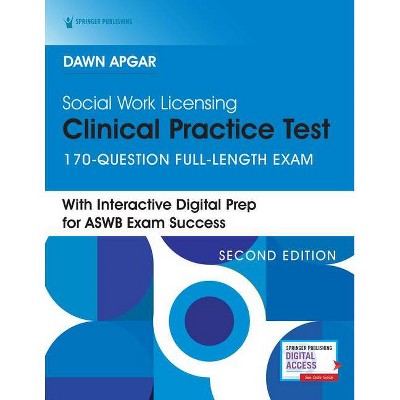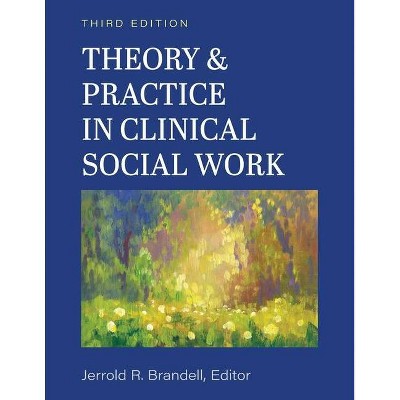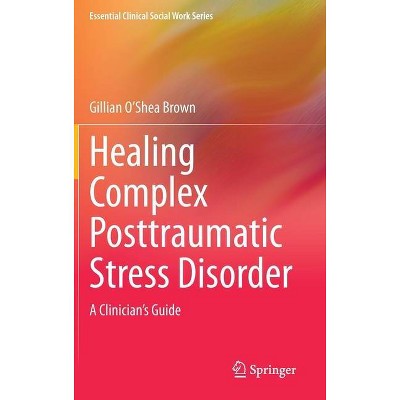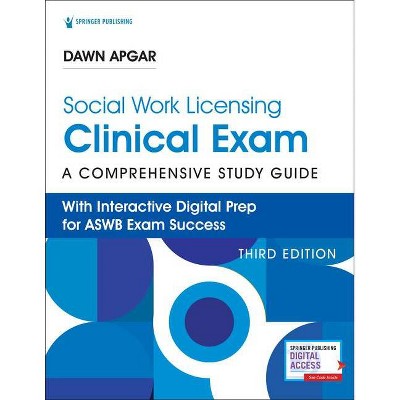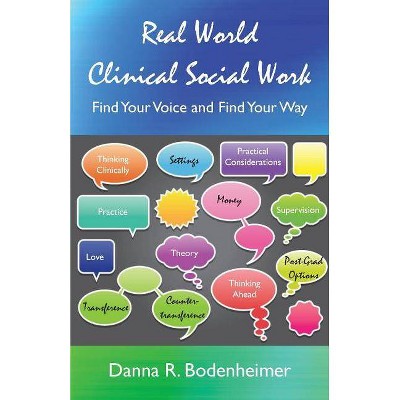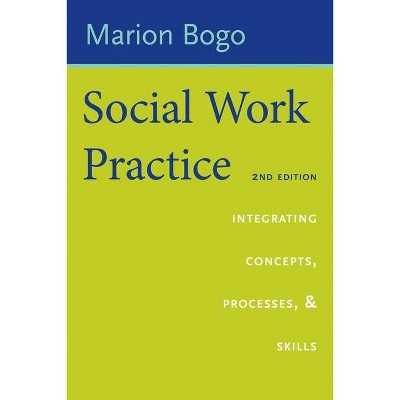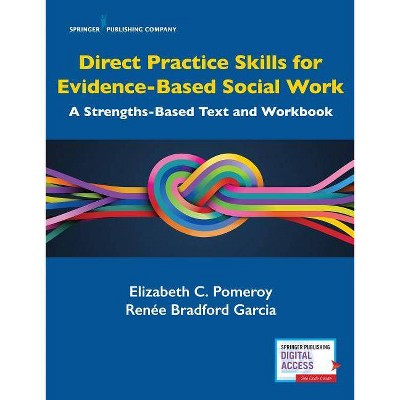Evidence-Based Practice in Clinical Social Work - (Essential Clinical Social Work) 2nd Edition by James W Drisko & Melissa D Grady (Hardcover)
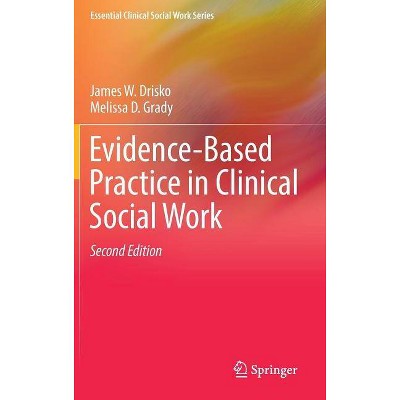
Similar Products
Products of same category from the store
AllProduct info
<p/><br></br><p><b> About the Book </b></p></br></br><p>Benefiting from the authors' long clinical experience, this practical volume takes readers through the EBP decision-making process in assessment, treatment planning, and evaluation, providing guidelines the correct application of research findings.</p><p/><br></br><p><b> Book Synopsis </b></p></br></br><p></p><p>The second edition of <i>Evidence-Based Practice in Clinical Social Work </i>continues to bridge the gap between social work research and clinical practice, presenting EBP as both an effective approach to social work and a broader social movement. Building on the models and insights outlined in the first edition, this new edition provides updated research and additional case studies addressing relevant issues such as trauma treatment and opioid dependence.</p><p>Drawing on their multidisciplinary experience as practitioners, researchers, and educators, the authors guide readers through the steps of the EBP decision-making process in assessment, treatment planning, and evaluation. The book places special emphasis on balancing clinical expertise, research results, and client needs, and analyzes both the strengths and limitations of the EBP model in order to give readers a more complete idea of how the method will shape their own practice.</p><p>In addition, this practice-building reference: <br></p><ul><li>Introduces core principles of EBP and details its processes in social work<br></li><li>Features guidelines for engaging clients in EBP and transmitting research findings<br></li><li>Offers a range of case examples demonstrating EBP with diverse clients<br></li><li>Addresses education and supervision issues and related controversies<br></li><li>Includes an expanded glossary and valuable resources for use in evidence-based practice<br></li></ul><p></p><p><i>Evidence-Based Practice in Clinical Social Work</i> is a practical resource for clinical social work professionals and educators that broadens the field and expands the healing possibilities for the profession.</p><p></p><p/><br></br><p><b> From the Back Cover </b></p></br></br><p>The second edition of <i>Evidence-Based Practice in Clinical Social Work </i>continues to bridge the gap between social work research and clinical practice, presenting EBP as both an effective approach to social work and a broader social movement. Building on the models and insights outlined in the first edition, this new edition provides updated research and additional case studies addressing relevant issues such as trauma treatment and opioid dependence.<br></p><p>Drawing on their multidisciplinary experience as practitioners, researchers, and educators, the authors guide readers through the steps of the EBP decision-making process in assessment, treatment planning, and evaluation. The book places special emphasis on balancing clinical expertise, research results, and client needs, and analyzes both the strengths and limitations of the EBP model in order to give readers a more complete idea of how the method will shape their own practice.</p><p>In addition, this practice-building reference: <br></p><ul><li>Introduces core principles of EBP and details its processes in social work<br></li><li>Features guidelines for engaging clients in EBP and transmitting research findings<br></li><li>Offers a range of case examples demonstrating EBP with diverse clients<br></li><li>Addresses education and supervision issues and related controversies<br></li><li>Includes an expanded glossary and valuable resources for use in evidence-based practice<br></li></ul><p></p><p><i>Evidence-Based Practice in Clinical Social Work</i> is a practical resource for clinical social work professionals and educators that broadens the field and expands the healing possibilities for the profession.</p><p></p><p/><br></br><p><b> About the Author </b></p></br></br>James Drisko is Professor at Smith College School for Social Work in Northampton, Massachusetts. His recent work focuses on evidence-based practice, the common factors model, clinical work with children and families including reactive attachment disorder and its treatment, psychotherapy evaluation and qualitative research methods. Drisko received his bachelor's degree in psychology from Amherst College, his M.S.W. from Smith College School for Social Work and his Ph.D. from Boston College Graduate School of Social Work. Drisko was elected to the National Academies of Practice in Clinical Social Work in 2008 and was named an as inaugural Fellow of the Society for Social Work and Research in 2014.<br>Melissa Grady is Associate Professor at the National Catholic School of Social Service in Washington, DC. Dr. Melissa D. Grady received her M.S.W. and Ph.D. from Smith College School of Social Work. Her clinical experience includes both work in the public mental health sector and private sector. Her clinical experience includes clients who have experienced trauma, depression, anxiety, anger management as well as other mental health issues. In addition, Dr. Grady has worked with parents who are separating and divorcing and struggle with co-parenting. In addition, she has practiced, writes about and conducts research and trainings on sex offenders and evidence-based treatment practices. She is formerly a faculty member at the University of North Carolina at Chapel Hill's School of Social Work and is now currently on the faculty of Catholic University's National School of Social Service where she teaches in the areas of mental health, clinical practice, clinical theory and research methods.
Price History
Price Archive shows prices from various stores, lets you see history and find the cheapest. There is no actual sale on the website. For all support, inquiry and suggestion messages communication@pricearchive.us
